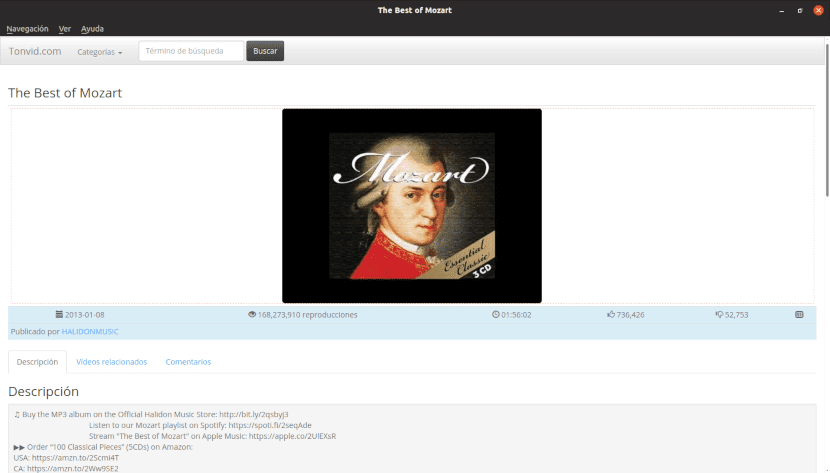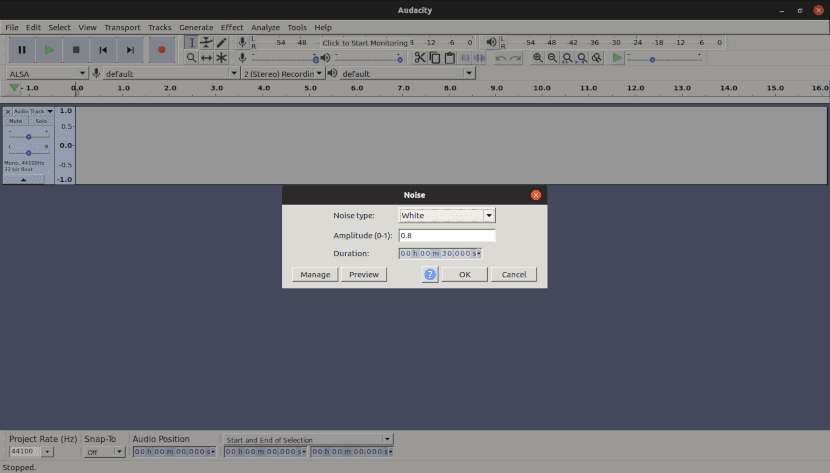
SMTube is a tool that allows you to browse YouTube playlists without using the browser.
In the world we live in it becomes increasingly difficult to concentrate. Luckily, even though we can't isolate ourselves, we always we can use a pair of headphones and these Linux applications to listen to music that makes us more productive.
Although there is no conclusive evidence, it is common sense that listening to sounds that we like or that are not distracting produces better results than those that annoy or distract attention.
A Little History
At the beginning of the last century, a military man created a technology that allowed multiple audio signals to be transmitted through the phone cord.
Already in civilian life, Major General George O. Squier, created a company based on his invention. The service was going to be something like the granddaddy of Spotify.
Was proposed broadcast music programming to households using the phone lines in exchange for a subscription.
Unable to compete with radio for the domestic market, decided to specialize in the high public transit sector dedicating itself to musicalizing offices, hotel lobbies, shopping centers and elevators. His sales pitch was that music reduced stress and increased productivity.
As anecdotal data Squier also anticipated Netflix, given the impossibility of obtaining the reproduction rights of third-party recordings, he ended up creating his own original content.
It was a matter of time for independent scientists decided to verify the information that the right music decreased stress and increased productivity. The most famous result of his research was the so-called "Mozart effect", according to which lThe music of the Austrian composer enhanced the performance of students.
Music and sounds that increase productivity.
When it comes to human beings, there is no single recipe.
It is actually a process of trial and error until we find the playlist that best suits our needs.
Anyway, here is a list of music genres that you can try:
- Classical music: The term classical music encompasses a number of compositions of different types. They all have in common being very estructured and based on patterns. Recognition of those patterns would give our brain a sense of security and tranquility.
- Video game music: Video game soundtracks They are designed to keep the player's attention on the game. In conclusion, what works to kill Martians can also work when filling out your tax return.
- Nature sounds: According to various studies, could improve cognitive functioning, optimize your ability to concentrate and increase your level of satisfaction.
- Noises: Certain types of random noises allow us isolate ourselves from ambient sounds, increasing concentration. The same happens with engine noises.
Linux applications to find and listen to music and sounds that make us productive.
In the Linux repositories there are multiple applications that serve the same purpose. So take the following only as a list of suggestions.
smtube
This tool is part of SMPlayer. SMPlayer is a player based on MPlayer, one of the most powerful open source multimedia player programs.
With SMTube we can browse the search engine Youtube, choose a video and opt for the following playback options:
- Add the video to a playlist.
- Add the audio to a playlist.
- Play the video in any of the players that we have installed.
- Listen to the audio in one of the players that we have installed.
- View the video in a web browser.
SMPlayer is in the repositories of the main Linux distributions.
Spotify
Spotify It was the first streaming service to have an official Linux client. Currently, it is much easier to install on most distributions thanks to the packages Snap y Flat pack.
Its catalog of music and sounds for productivity is very wide. We have specific playlists created by users.
Nowadays the subscription is not so expensive, and the productivity-enhancing effects are lost by the advertising of the free subscription.
Also, unlike Youtube, Spotify allows you to download the playlists to your mobile and listen with the screen locked.
Audacity

The Audacity audio editor has a random noise generator.
Although it is counterintuitive, there are noises that help you concentrate. Of course, those of us who choose to listen willingly. I had a neighbor who played the bagpipes at three in the morning who made me deny my Galician ancestors.
Both YouTube and Spotify have an extensive list of random noises as well as household appliances and vehicles.
Instead with Audacity we can generate our own noises. I mean random noises, although there is nothing to prevent us from recording the washing machine and editing the audio with the program.
The types of noise that Audacity allows to generate are:
- White: It is a constant sound sum of all frequencies. sonorous. They are repeated randomly and there is none that stands out.
- Brown: It is composed of low and medium frequencies.
- Pink: It is a noise composed of frequencies of random values, but with less amplitude for high frequencies.
How to generate noise with Audacity.
- Open Audacity and select Generate on the menu.
- Choose Noise.
- Select the type of noise, frequency amplitude, and duration.
- press OKAY.
- Press on Archive and in Export to save in the desired format.
Audacity is available in the repositories of the main Linux distributions and in formats Snap y Flat pack.
Final words.
There are many resources for background music and sounds in addition to YouTube and Spotify. A Google search makes it easy to find them.
There are also multiple alternatives to listen to them. For example paste the link of a Youtube playlist in VLC, or use Ambient Noise Player which I did not include in this list because its interface does not integrate well with the Ubuntu desktop.
It's all about finding the playlist you feel most comfortable with.